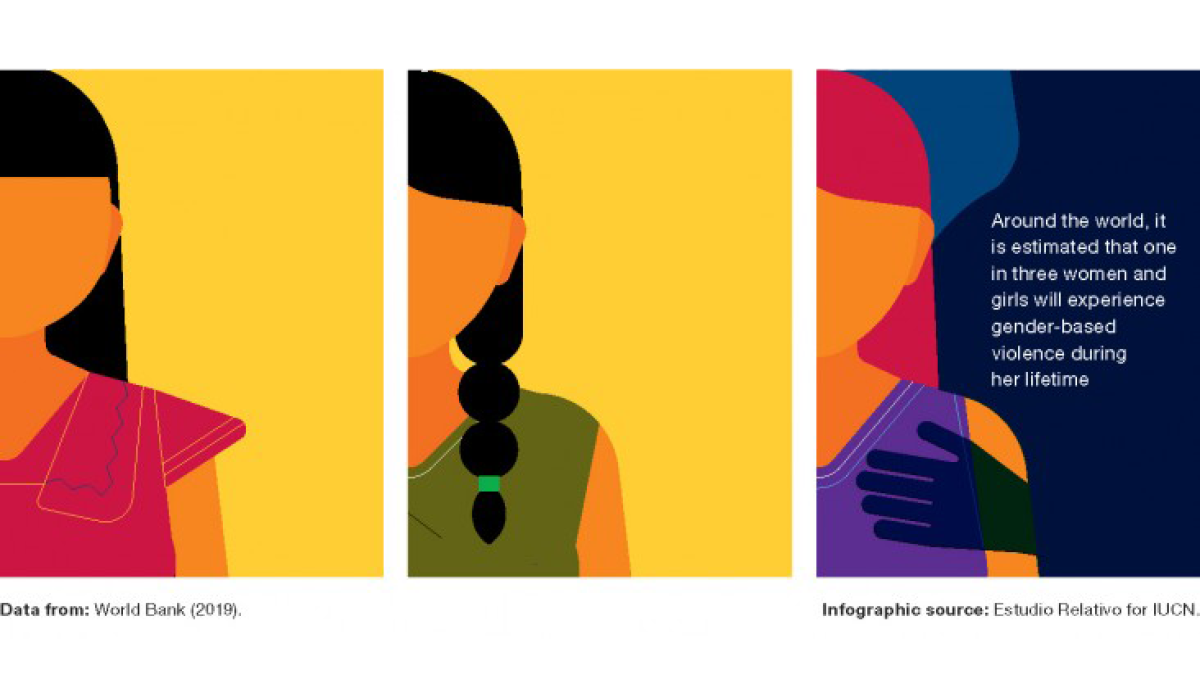
In USAID’s partner countries, the most vulnerable communities and people often rely the most on the environment for food, jobs, and security. But they also typically have the least representation in decisions about their lands, waters, wildlife, and other natural resources. This series of stories highlights USAID’s efforts to promote global environmental equality through our work on indigenous rights, youth empowerment, and gender equality.
In the Democratic Republic of the Congo, many of the two million people working in the artisanal and small-scale mining sector are women. Gender-based violence and gender inequality are widespread in the mining sector and in mining communities. One study found that women were often required to trade sex for access to work in mining in eastern DRC. At the same time, the mines cause significant pollution and deforestation in the surrounding areas, negatively impacting both the environment and the people living and working nearby.
Such patterns of gender-based violence occur across environmental contexts, affecting the security and well-being of nations, communities, and individuals, and jeopardizing development goals. Efforts to improve natural resource management and to conserve the environment offer critical opportunities to address gender inequalities—such as in the artisanal mining industry in the Democratic Republic of the Congo. Likewise, efforts to prevent gender-based violence and increase women’s meaningful inclusion in natural resource decision-making can lead to more effective biodiversity conservation.
A new project—and grant recipient of USAID’s Resilient, Inclusive, and Sustainable Environments (RISE) Challenge, aims to address the connections between gender-based violence and environmental protection in the Democratic Republic of the Congo. The local organization Action to Protect Women and Abandoned Children and the Harvard Humanitarian Initiative are using the investment to provide 360 male and female miners with training on human rights, women’s protection, and reducing mining impacts. Ultimately, the project aims to develop an evidence-based learning curriculum that can be scaled up and replicated to address human rights, gender-based violence, and environmental protection in the mining sector.

Estudio Relativo for IUCN
Through initiatives like the RISE Challenge, USAID works to empower poor and marginalized citizens and to integrate women into environmental decision-making. Gender inequalities and gender-based violence hinder conservation results, as women’s participation and their knowledge are left out of solutions. Gender-based violence also often forms feedback loops with environmental issues: Gender-based attacks and discrimination can worsen biodiversity loss, which, in turn, triggers new forms of violence.
To build understanding about these issues, USAID’s Advancing Gender in the Environment (AGENT) project, a partnership with the International Union for the Conservation of Nature (IUCN), published Gender-based Violence and Environment Linkages: The Violence of Inequality, the first comprehensive report on gender-based violence in the environment sector. The report compiled and reviewed more than 1,000 pieces of information and experiences on GBV and the environment; it serves as a foundational knowledge base for addressing violence against women and girls. Building on the report, AGENT recently launched a new GBV learning platform to showcase tools, news, promising practices, and visual data that explore gender-based violence and environmental linkages.
These complex development challenges cannot be addressed in isolation and require both research and action. USAID-supported initiatives, such as RISE and AGENT, are working to address systemic gender inequalities, ensuring diverse representation in decisions, and supporting gender-responsive programming.
Learn more about gender-based violence and the environment in this webinar recording.
